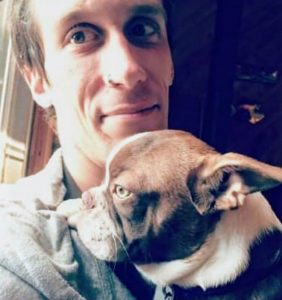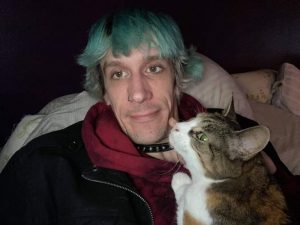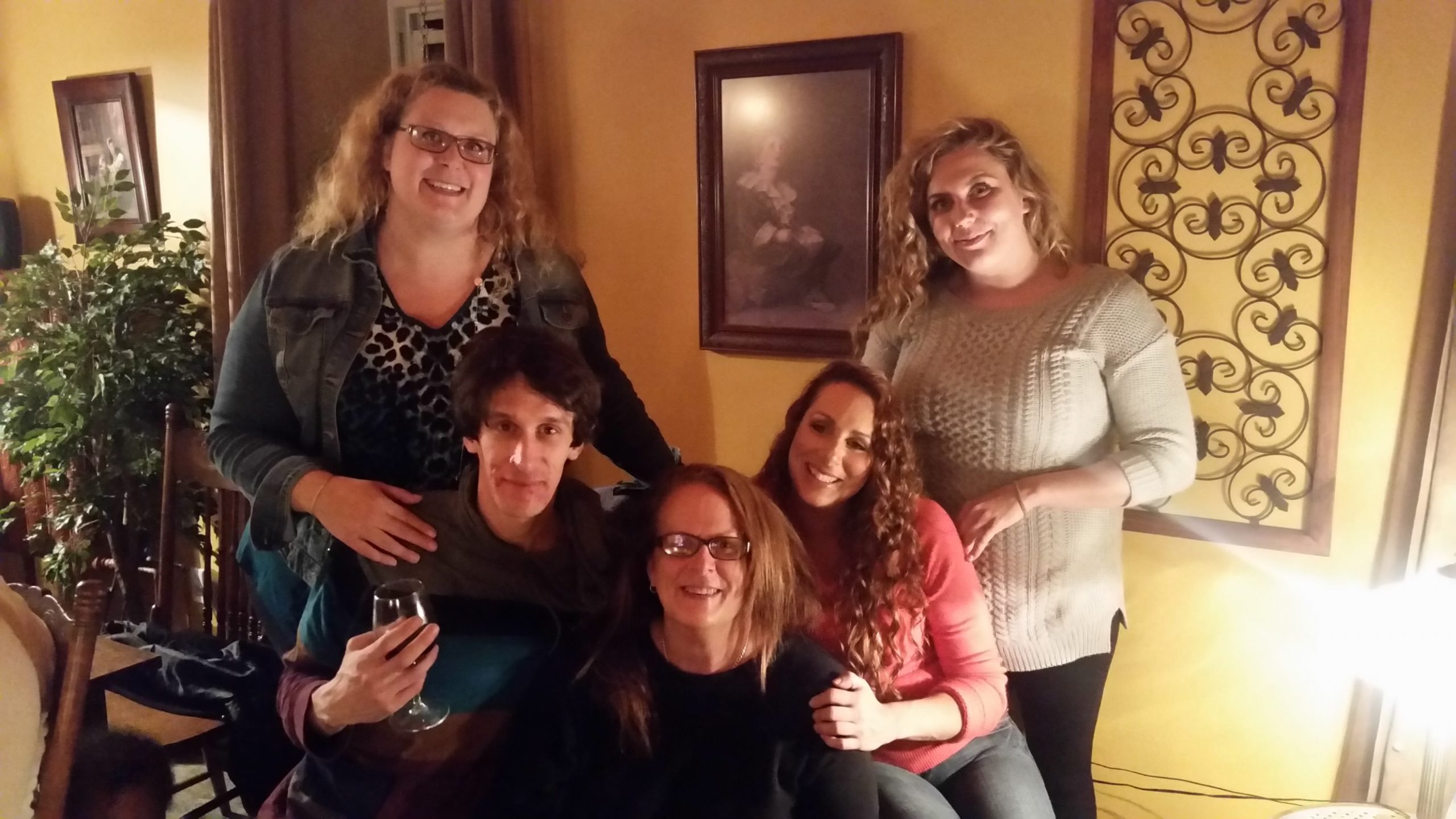Caution: This story contains details some readers may find upsetting.
*A previous version of this article incorrectly identified the officer who shot the victim (due to an error in the family’s original statement of claim). The Advertiser regrets the error.
FERGUS – Mathias Bunyan’s death will be examined in a coroner’s inquest.
The inquest was officially announced on Aug. 13, just days before the three-year anniversary of Bunyan’s death.
On Aug. 15, 2021, a Wellington OPP officer shot Bunyan four times in the chest in the bedroom of a Fergus apartment.
Bunyan’s family has filed a civil lawsuit, an updated version of which identifies the officer who shot Bunyan as Constable Jason White (the original claim named the wrong officer).
It’s a negligence claim, said Akosua Matthews, a lawyer representing Bunyan’s family.
The family is not alleging that Bunyan’s death was intentional but that “the officers were not careful enough,” she told the Advertiser.
The inquest is a public proceeding to bring attention to circumstances of death by examining facts.
Coroner’s inquests are mandatory when a death is caused by police use of force or an unnatural death happens in police custody.
It will conclude with recommendations about how similar deaths can be prevented, from a five-person jury assembled from the community.
The date and location of the inquest have not yet been released. Matthews said she expects it to last two weeks.
SIU investigation
The shooting was investigated at the time by the province’s Special Investigations Unit (SIU), which found “no reasonable grounds to believe” the officer who shot Bunyan committed a criminal offence.
White declined an SIU interview and did not provide his notes. During the inquest, White will be required to testify.
The SIU investigation included interviews with six officers and eight civilian witnesses, as well as police radio transmissions, officer notes, ambulance call reports, preliminary autopsy reports and over an hour of body-cam footage.

Matthias Bunyan with pet dog, Forest. Submitted photo
Police arrived at the 31-year-old’s apartment on Belsyde Avenue at about 11:30am on Aug. 15 for a wellness check, after receiving three calls about yelling coming from inside.
Police were informed of several previous mental health calls involving Bunyan, the report states.
When they arrived, all was quiet and Bunyan, who was home alone, did not come to the door. After more than 10 minutes, an officer said he saw Bunyan briefly before the door was slammed shut and locked.
Almost an hour later, police forced entry into Bunyan’s apartment with a master key and bolt cutters to break through a security chain.
Officers said they initially could not see anyone, but then Bunyan appeared briefly again, this time carrying two knives, before hiding in a bedroom closet, according to the SIU.
The police attempted to convince Bunyan to leave the closet, assuring they were there to help, according to SIU accounts from body-cam audio.
Bunyan tried to “politely” persuade the police to leave, assuring them they had nothing to worry about, saying, “I’m totally cool, man … I will just stay here and hang out.”
But Bunyan was distressed and confused, expressing doubt that the officers were really police, and at times stating, “I’m going to slit my own throat” and saying the officers would die with Bunyan if they didn’t leave, the SIU report states.
An officer called for backup, requesting negotiators, who were not available, and the OPP Emergency Response Team (ERT) – specially trained-officers who respond to high-risk situations.
At 1:14 the officers were told the ERT had been dispatched.

Matthias Bunyan and Clementine the cat. Submitted photo
A minute later, an officer sprayed pepper spray into the closet where Bunyan hid.
Bunyan emerged from the closet about 15 minutes after that, carrying two knives, and “came at” the officer, the SIU report states.
According to the family’s civil statement of claim, Bunyan made contact with a cart officers had placed in front of the closet, losing bodily control and falling toward the bed.
“As soon as Mathias exits the bedroom closet, the police defendants unleash escalating use of force over mere seconds,” states the claim.
“The police defendants deploy tasers multiple times, causing Mathias to lose further control of his body.”
Then, the subject officer, standing about a metre away, fired four 9mm rounds “point blank” into Bunyan’s chest, the SIU report states.
The statement of claim identifies this officer as White.
“The police defendants continue to taser Mathias while he is bleeding profusely from multiple gunshot wounds,” the statement of claim continues.
Then, fatally wounded, Bunyan crawled out of the bedroom and was pronounced dead in the living room after paramedics entered the apartment and attempted to perform lifesaving measures, the SIU report states.
SIU director Joseph Martino found the officer “acted reasonably to defend himself when he met the risk of a potentially deadly knife attack with a resort to lethal force of his own.”
The SIU initially said the officer sustained “serious injuries” of his own, but later described the officer’s injury as “a small laceration” on his left bicep.
The SIU and OPP declined requests for comment.
A spokesperson for the Ontario Provincial Police Association told the Advertiser “Our members focus on de-escalation and the safety of the public and the police in their interactions.
“This incident is a tragedy for all involved.”
Bunyan’s family
In an interview with the Advertiser in 2021, Bunyan’s sisters Alysha Bunyan, Rachel Labrie, and Kimberly Feather described their sibling as a humble, quiet, lovable and an eccentric person with painted nails and a love for music, art and nature.
(They said Bunyan identified as a woman and used he/him pronouns, but Mathias’ Facebook page states she/her pronouns).
Bunyan grew up in Fergus and attended Centre Wellington District High School.
The sisters described Bunyan’s struggles with mental health and said they had an intervention planned to get their sibling an emergency psychiatric assessment the day after Bunyan’s death.

MATHIAS BUNYAN
“The picture of Mathias is this knife-wielding criminal, which he was not; he had [a] mental illness, he was sick,” Feather previously told the Advertiser.
The family declined an interview for this article on the inquest, but made comments through an Aug. 14 press release from their legal team.
Feather states, “We lost a part of ourselves that day that can never be reclaimed.
“Mathias’ nieces and nephews will never know the whimsical, funny, loving, artistic and smart uncle that he was.”
Sandra Bunyan, Mathias’ mother, stated “Mathias was such a loving and beautiful soul.
“We hope this inquest can help prevent this from happening again to another family.”
Alysha Bunyan described Mathias as her “whole world,” and expressed hope the inquest will offer her family “a chance to finally heal and grieve.”
“There is not a day that passes that we don’t grieve the loss,” Labrie added.
“With this inquest, I hope it sheds light on the stigma of mental health and the failures within our system.”
Coroner’s inquest
Matthews said Bunyan’s family intends to seek standing as a party at the inquest, which will be granted.
“Each will decide to which degree they are comfortable in participating,” she said, and “some may choose to take the witness stand.
“I will be there as council,” she said, and will ask questions of all witnesses, including officers and any paramedics or experts called forward.
Matthews said one of the big questions they hope to answer during the inquest is why the officers did not wait for the OPP ERT to arrive.
“Specialized help was on the way,” Matthews said.
But instead of trying to “keep things as calm as possible” until support arrived, “the officers on the scene decided to try to smoke Mathias out of the bedroom closet using a lot of pepper spray.
“The family really wonders, if the team had arrived, could this have been avoided, and would Mathias still be with us today?”
Civil claim
The inquest may also inform the civil claim, which was filed in October in Gueph but to which the province has not yet responded.
The claim seeks at least $3.4 million in damages and lists Bunyan’s estate and Bunyan’s mother and three sisters as plaintiffs.
It names four police officers as defendants: White, Constable Matthew Smith, Sergeant Kevin Driscol and Constable Kyle Fozard.
It also lists several unnamed officers, OPP commissioner Thomas Carrique and the Ministry of the Attorney General, the legal entity responsible for police.
Matthews said officers’ evidence provided during the inquest could inform a variety of possible outcomes of the civil case, including possible settlement discussions or proceeding to trial.
Outcomes
Going through the inquest forces family members to re-live much of the tragedy of Bunyan’s death, Matthews said.
But she added it may also help with their grief process, and help prevent another family from experiencing something similar.
“The family is really interested in learning more about why this had to happen this way, and what could be done better so we don’t have another family suffering this type of grief,” Matthews said.
“The grief is very raw and very real.”
Though recommendations made by the jury during the inquest are not legally binding, they “certainly have a moral weight,” she explained.
“And through repetition – particularly targeted at one particular service,” the recommendations can make an impact, she said.
“We do see movement [but] it’s not enough. That’s why these cases continue to happen,” particularly cases involving mental health.
And unless “major shifts” happen, Matthews expects similar stories to keep coming.



